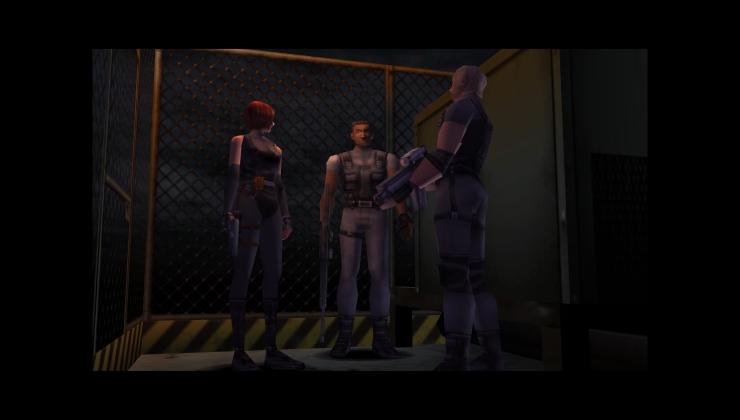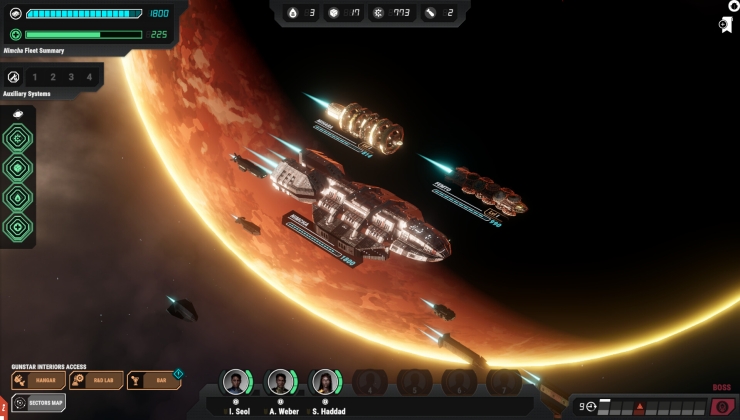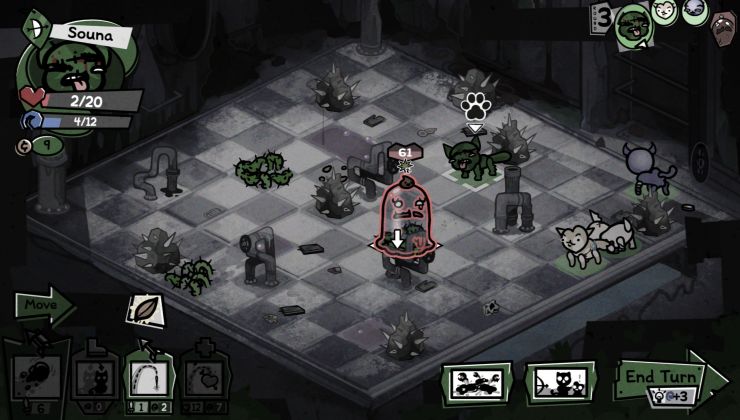The Wandering Village from Stray Fawn Studio is a really unique city-builder that takes place on the back of a giant moving creature. It has Native Linux support and is Steam Deck Verified / SteamOS Compatible.
It's unlike any other village / city-builder I've played due to the way the game progresses, with you going through different locations with events. A really great idea and visually pleasing too. Nice to see it fully release now with a lot of content enhancements since the initial Early Access release.
As usual for a lot of games now, the 1.0 release is not the end of the road. They're working on addressing feedback and a 1.1 "Quality of Life & UX update" is planned, along with a further 1.2 update to expand the interactions and relationship you have with the giant creature named Onbu.
For the 1.0 release they made a sweet animated trailer:

Direct Link
See the previous trailer for actual footage:

Direct Link
I'd prefer to think of it as a tribute to Miyazaki instead.
:smile:
wow what a plagiarism of Miyazaki!Miyazaki?
Last edited by Purple Library Guy on 21 Jul 2025 at 2:59 pm UTC
You forgot to name the anime that inspired The Wandering Village in the first place: Nausicaä of the Valley of the Wind.
One of our main inspirations for the game is the 1984 anime ‘Nausicaä of the Valley of the Wind’ by Hayao Miyazaki. The world of The Wandering Village is heavily inspired by the anime’s setting, a post-apocalyptic world where poisonous plants are spreading and gradually making life on the ground impossible. This adds a survival aspect to the game. The villager and Onbu are dependent on one another and need to find a way out of this mess together.Taken from an interview on the Masters in Gaming! site.
https://mastersingaming.com/2023/07/21/the-wandering-village-creating-onbu-the-giant-walking-ecosystem/
Spirited Away is probably one of studio Ghibli's most recognized anime in the West. Personally, though, I think that Nausicaä of the Valley of the Wind remains one of his best. His manga expands on the story even further. Of course, my first encounter with Miyazaki's works was Princess Mononoke. Unlike Spirited Away or Kiki's Delivery Service, neither of these films are targeted for children.
That being said, I have enjoyed every one of studio Ghibli's anime that I have seen. If you haven't already, you should see them all!
Last edited by Caldathras on 21 Jul 2025 at 4:47 pm UTC
Spirited Away is perhaps less ambitious, but it's much more of a complete movie. It's still weird, it still raises some issues (not all that subtly, but I've never really been into subtle anyway), it still has distinctive Miyazaki approaches to characters and things go in some odd directions, and it has perhaps the most gorgeous, rich and strange visuals of any movie I have ever seen--perhaps the fullest flowering of that Miyazaki "look". But all the stuff works together, the strands get pulled together and the movie has a resolution. Every so often I re-watch Spirited Away, just because I want to. I might re-watch Nausicaä of the Valley of the Wind someday, but if so it will be less because I really want to and more because I think I should.
I get what you mean about the story seeming incomplete. The movie is but a segment of the entire story. The manga fleshes out the entire story and even provides that "evil" antagonist you were craving. The antagonists in the movie (Princess Kushana and Kurotowa) were never really meant to be the bad guys. That comes out much more clearly in the overall story from the manga.
What you deem to be a flaw in Miyazaki's writing is one of its strengths to me. His stories rarely have a clear villain. To me, that reflects the real world more accurately.
While I enjoy Spirited Away, I never really connected with it like you seem to have. Howl's Moving Castle, on the other hand, is one of my favorites. I always felt that my father would have particularly loved the music in that one. He was passionate about classical music. He passed away shortly before the movie was released in North America. Still, any time I watch that film, I think of my father.
Yeah, Miyazaki. Not the game itself, just that trailer, has a feel that goes beyond general "anime" style and more into the specific animation style of the studio Ghibli films of Hayao Miyazaki, like "Kiki's Flying Delivery Service" or "Spirited Away" (which are awesomeOh yeah, I totally got that feeling... Just wasn't aware of the name of the guy behind these.
if you haven't seen Spirited Away, just bloody go and see it).We're a big Studio Ghibli house, and have most of these of their stuff on Blu-Ray Disc or DVD.
There's a lesser version of this in Spirited Away, where Yubaba, whose whole gig is using magic to enslave people and actually takes the main character's name away, sort of, gradually comes to seem like just a grumpy old employer who the main character embarrasses by calling her "granny" at the end. But it's not like she actually reforms, it's more of a shift of how you see her. And, maybe she's getting a bit softer from the influence of the MC. Maybe. At any rate, it pretty much works in the story--it's not like there had been any expectation that Chihiro was going to somehow defeat Yubaba.
This kind of antagonist personality shift I think happens in a few movies because Miyazaki seems to like creepy scary setups but does not so much like the violent conflict resolution that those creepy scary setups would logically point towards. It lets him have his cake and eat it too, and the imagery and sense of wonder are so strong, and the uplifting not-violent endings are typically so inspiring, that he can get away with it. But it doesn't mean that inconsistency isn't there, he just generally makes me not care very much.
But, in the real world, the individuals seen as the bad guy don't think of themselves as bad. They just have a different point of view on matters. Many times they see themselves as the good guy.
I think that Miyazaki gets that (and probably better than I explained it). So, he sets up the audience to see this individual as the evil antagonist and then flips that view on its head and shows us a different interpretation of that character's nature. He also shows us the possibility of redemption, something seen a lot more rarely in Western stories. We seem to want to punish our villains rather than redeem them. Vengeance seems to be imminently more satisfying as a conclusion to our stories.
Any way, those are my deep thoughts for the day ...







 How to setup OpenMW for modern Morrowind on Linux / SteamOS and Steam Deck
How to setup OpenMW for modern Morrowind on Linux / SteamOS and Steam Deck How to install Hollow Knight: Silksong mods on Linux, SteamOS and Steam Deck
How to install Hollow Knight: Silksong mods on Linux, SteamOS and Steam Deck